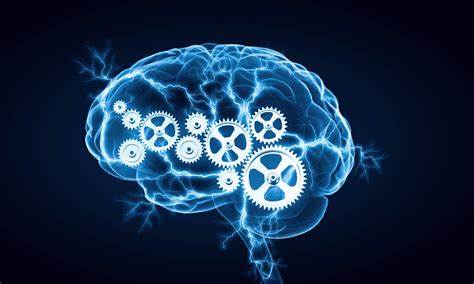Blog
Strategies for Developing Intelligence: Enhancing Cognitive and Emotional Abilities

In today’s rapidly evolving world, intelligence is widely recognized as a crucial asset for personal and professional success. While some may believe that intelligence is an inherent trait, research suggests that it can be cultivated and enhanced through deliberate effort and various strategies. This article delves into effective methods for developing intelligence, encompassing both cognitive and emotional aspects and also mental health.
Understanding the Importance of Intelligence:
Intelligence is a multifaceted construct that encompasses cognitive abilities, such as problem-solving, critical thinking, and creativity, as well as emotional intelligence, which involves understanding and managing one’s emotions and interpersonal relationships. Developing intelligence is essential for navigating life’s challenges, achieving goals, and fostering personal growth.
Building a Foundation:
To begin the journey of enhancing intelligence, individuals can start by immersing themselves in articles, books, and resources that explore different facets of intelligence. Reading articles on cognitive psychology, neuroscience, and emotional intelligence can provide valuable insights into the underlying principles of intelligence and offer practical strategies for improvement.
Engaging in Cognitive Exercises:
One effective way to develop intelligence is through regular cognitive exercises that challenge the brain and promote cognitive growth. These exercises can include solving puzzles, playing strategic games like chess or Sudoku, learning a new language, or participating in activities that require complex problem-solving and critical thinking skills. Engaging in such activities stimulates neural pathways, enhances cognitive flexibility, and strengthens mental acuity.
Several types of cognitive exercises:
1) Puzzles and Brain Teasers: Solving puzzles like crosswords, Sudoku, jigsaw puzzles, and logic puzzles challenges your brain and improves problem-solving skills.
2) Memory Games: Memory games such as matching games, concentration, or memory card games can help improve short-term and long-term memory.
3) Word Games: Word games like Scrabble, Boggle, or word searches enhance vocabulary, language skills, and verbal fluency.
4) Numerical Games: Number-based games like Math puzzles, Sudoku, or mental math exercises strengthen numerical reasoning and mathematical skills.
5) Strategy Games: Strategy games such as chess, checkers, or strategy-based video games require critical thinking, planning, and decision-making skills.
6) Brain Training Apps: There are various brain training apps available that offer a range of cognitive exercises designed to improve memory, attention, and other cognitive functions.
7) Learning a New Skill: Learning a new skill or hobby, whether it’s playing a musical instrument, painting, or cooking, challenges the brain and fosters cognitive flexibility.
8) Reading and Writing: Reading books, articles, or engaging in creative writing exercises stimulates the brain, improves language skills, and enhances comprehension and analytical thinking.
9) Problem-Solving Activities: Engaging in problem-solving activities such as riddles, lateral thinking puzzles, or escape rooms requires creative thinking and logical reasoning.
10) Visual and Spatial Exercises: Activities like drawing, sketching, or visual puzzles enhance spatial awareness, visual processing, and perception skills.
Exploring Emotional Intelligence:
In addition to cognitive development, building emotional intelligence is equally crucial for overall intelligence enhancement. Emotional intelligence encompasses self-awareness, self-regulation, social awareness, and relationship management. Individuals can develop emotional intelligence by practicing mindfulness, cultivating empathy, and improving communication skills.
Practicing Mindfulness:
Mindfulness meditation is a powerful tool for enhancing both cognitive and emotional intelligence. By practicing mindfulness, individuals learn to observe their thoughts and emotions without judgment, cultivate present-moment awareness, and develop greater clarity and focus. Regular mindfulness practice has been shown to improve attention, memory, and emotional regulation, contributing to overall intelligence enhancement.
Seeking Intellectual Stimulation:
Another effective strategy for developing intelligence is to seek out intellectual stimulation in various forms. This may involve attending lectures, workshops, or seminars on topics of interest, participating in discussions and debates, or engaging in lifelong learning activities. Surrounding oneself with intellectually stimulating environments and individuals can inspire curiosity, foster creativity, and broaden one’s perspective.
Embracing Continuous Learning:
Intelligence development is a lifelong journey that requires a commitment to continuous learning and growth. Individuals should embrace opportunities for learning and challenge themselves to acquire new knowledge and skills regularly. Whether through formal education, online courses, or self-directed learning, the pursuit of knowledge fuels intellectual development and fosters a growth mindset.
Conclusion:
In conclusion, developing intelligence is a multifaceted process that encompasses cognitive and emotional growth. By engaging in cognitive exercises, exploring emotional intelligence, practicing mindfulness, seeking intellectual stimulation, and embracing continuous learning, individuals can enhance their intelligence and unlock their full potential. Ultimately, intelligence development is a lifelong endeavor that empowers individuals to navigate life’s complexities with confidence, resilience, and adaptability.
Medically approved by
Rychel Johnson, M.S., LCPC, a licensed clinical professional
-
Blog1 year ago
MyCSULB: Login to CSULB Student and Employee Portal – MyCSULB 2023
-
Android App3 years ago
Cqatest App What is It
-
Android1 year ago
What Is content://com.android.browser.home/ All About in 2023? Set Up content com android browser home
-
Software2 years ago
A Guide For Better Cybersecurity & Data Protection For Your Devices
-
Latest News2 years ago
Soap2day Similar Sites And Alternatives To Watch Free Movies
-
Android2 years ago
What is OMACP And How To Remove It? Easy Guide OMACP 2022
-
Android3 years ago
What is org.codeaurora.snapcam?
-
Business2 years ago
Know Your Business (KYB) Process – Critical Component For Partnerships





















